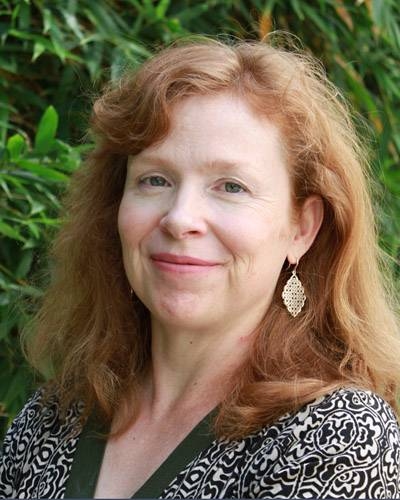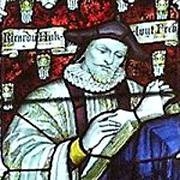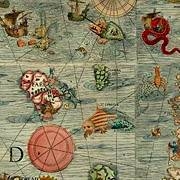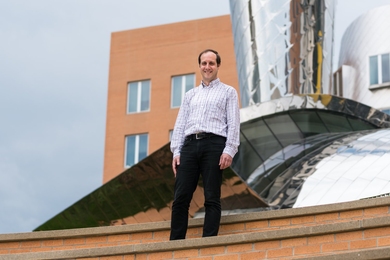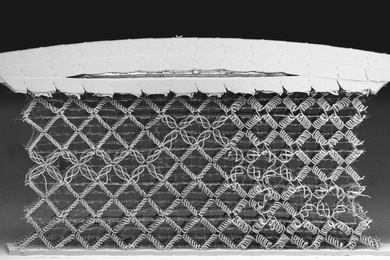Deborah K. Fitzgerald, Kenan Sahin Dean of the School of Humanities, Arts, and Social Sciences, has announced that Literature Professor Mary Fuller has been awarded the James A. (1945) and Ruth Levitan Prize in the Humanities.
The $25,000 prize is awarded annually as a research fund to support innovative and creative scholarship in the humanities. In addition to this year's Levitan Prize in the Humanities, Fuller also recently received a 2010-11 National Endowment for the Humanities Fellowship, and is spending the current academic year at the Huntington Library in San Marino, Calif.
Excellence, creativity and critical acumen
Writing at the time of Fuller's promotion to full professor (effective July 2010), James Buzard, head of literature, said "Mary is a colleague we value enormously for her excellent scholarship, critical acumen, educational innovations and positive energy. She is also an excellent teacher and displays great creativity and initiative in interdisciplinary teaching collaborations both within and beyond the School of Humanities, Arts, and Social Sciences."
Fuller's scholarship focuses on early modern travel writing: first-person accounts of European voyages and travels beyond the boundaries of Europe during the centuries just before and after Columbus. Of this inquiry, Fuller writes, "My training is in English Renaissance literature, but for the last 25 years, my work has been primarily focused on early modern exploration and travel. What first captivated me about travel writing, as a graduate student, was its difference from literature.
"These were texts that simply didn't respond to the questions and reading strategies we had all learned to apply to literary texts," she added. "These narratives, as much as they were shaped by rhetoric and imagination, were even more strongly pressured by the accidents and exigencies of experience in the material world. I wanted to understand how such texts could be thought about productively, what questions they wanted to answer."
Material books and scientific expeditions
Fuller is also interested in material books and how readers use them, both historically and in the present. She has published articles on Caribbean poetry, exploration narratives and video games, early modern circumnavigations, and Renaissance narratives of travel to Russia, West Africa, Guiana, Newfoundland and Istanbul. Her teaching spans a broad range of topics, from poetry to scientific expeditions, including subjects cross-listed with Comparative Media Studies, Music, Anthropology, Women’s and Gender Studies, and the Department of Earth, Atmospheric and Planetary Sciences (EAPS).
Over the summer of 2010, Fuller studied mapping before 1800 at the London Rare Books School, preparation, in part, for an in-progress book about Richard Hakluyt. A contemporary of Shakespeare’s, Hakluyt promoted and invested in overseas voyages, and is most famous for collecting and publishing thousands of pages of narrative and other documents about English travel before 1600.
Next summer (2011), Fuller will conduct an NEH-funded Summer Seminar for College Teachers on campus at MIT. The seminar, titled "Reading the English encounter with the Americas," brings together faculty from the disciplines of literature, history, archaeology and history of science. The scholars will discuss interdisciplinary approaches to the multifaceted phenomenon of the early modern voyage.
On her return to regular teaching in fall of 2011, Fuller will again teach a freshmen advising seminar with Lindy Elkins-Tanton from EAPS focusing on scientific expeditions, past and present.
About the Levitan Prize in the Humanities
The prize was established through a gift from the late James A. Levitan, a 1945 MIT graduate in chemistry, who was also a member of the MIT Corporation and of counsel at the law firm of Skadden, Arps, Slate, Meagher and Flom of New York City. The prize, first awarded in 1990, supports innovative and creative scholarship in the humanities by faculty members in MIT's School of Humanities, Arts, and Social Sciences. For application information visit Resources.
The $25,000 prize is awarded annually as a research fund to support innovative and creative scholarship in the humanities. In addition to this year's Levitan Prize in the Humanities, Fuller also recently received a 2010-11 National Endowment for the Humanities Fellowship, and is spending the current academic year at the Huntington Library in San Marino, Calif.
Excellence, creativity and critical acumen
Writing at the time of Fuller's promotion to full professor (effective July 2010), James Buzard, head of literature, said "Mary is a colleague we value enormously for her excellent scholarship, critical acumen, educational innovations and positive energy. She is also an excellent teacher and displays great creativity and initiative in interdisciplinary teaching collaborations both within and beyond the School of Humanities, Arts, and Social Sciences."
Fuller's scholarship focuses on early modern travel writing: first-person accounts of European voyages and travels beyond the boundaries of Europe during the centuries just before and after Columbus. Of this inquiry, Fuller writes, "My training is in English Renaissance literature, but for the last 25 years, my work has been primarily focused on early modern exploration and travel. What first captivated me about travel writing, as a graduate student, was its difference from literature.
"These were texts that simply didn't respond to the questions and reading strategies we had all learned to apply to literary texts," she added. "These narratives, as much as they were shaped by rhetoric and imagination, were even more strongly pressured by the accidents and exigencies of experience in the material world. I wanted to understand how such texts could be thought about productively, what questions they wanted to answer."
Material books and scientific expeditions
Fuller is also interested in material books and how readers use them, both historically and in the present. She has published articles on Caribbean poetry, exploration narratives and video games, early modern circumnavigations, and Renaissance narratives of travel to Russia, West Africa, Guiana, Newfoundland and Istanbul. Her teaching spans a broad range of topics, from poetry to scientific expeditions, including subjects cross-listed with Comparative Media Studies, Music, Anthropology, Women’s and Gender Studies, and the Department of Earth, Atmospheric and Planetary Sciences (EAPS).
Over the summer of 2010, Fuller studied mapping before 1800 at the London Rare Books School, preparation, in part, for an in-progress book about Richard Hakluyt. A contemporary of Shakespeare’s, Hakluyt promoted and invested in overseas voyages, and is most famous for collecting and publishing thousands of pages of narrative and other documents about English travel before 1600.
Next summer (2011), Fuller will conduct an NEH-funded Summer Seminar for College Teachers on campus at MIT. The seminar, titled "Reading the English encounter with the Americas," brings together faculty from the disciplines of literature, history, archaeology and history of science. The scholars will discuss interdisciplinary approaches to the multifaceted phenomenon of the early modern voyage.
On her return to regular teaching in fall of 2011, Fuller will again teach a freshmen advising seminar with Lindy Elkins-Tanton from EAPS focusing on scientific expeditions, past and present.
About the Levitan Prize in the Humanities
The prize was established through a gift from the late James A. Levitan, a 1945 MIT graduate in chemistry, who was also a member of the MIT Corporation and of counsel at the law firm of Skadden, Arps, Slate, Meagher and Flom of New York City. The prize, first awarded in 1990, supports innovative and creative scholarship in the humanities by faculty members in MIT's School of Humanities, Arts, and Social Sciences. For application information visit Resources.
